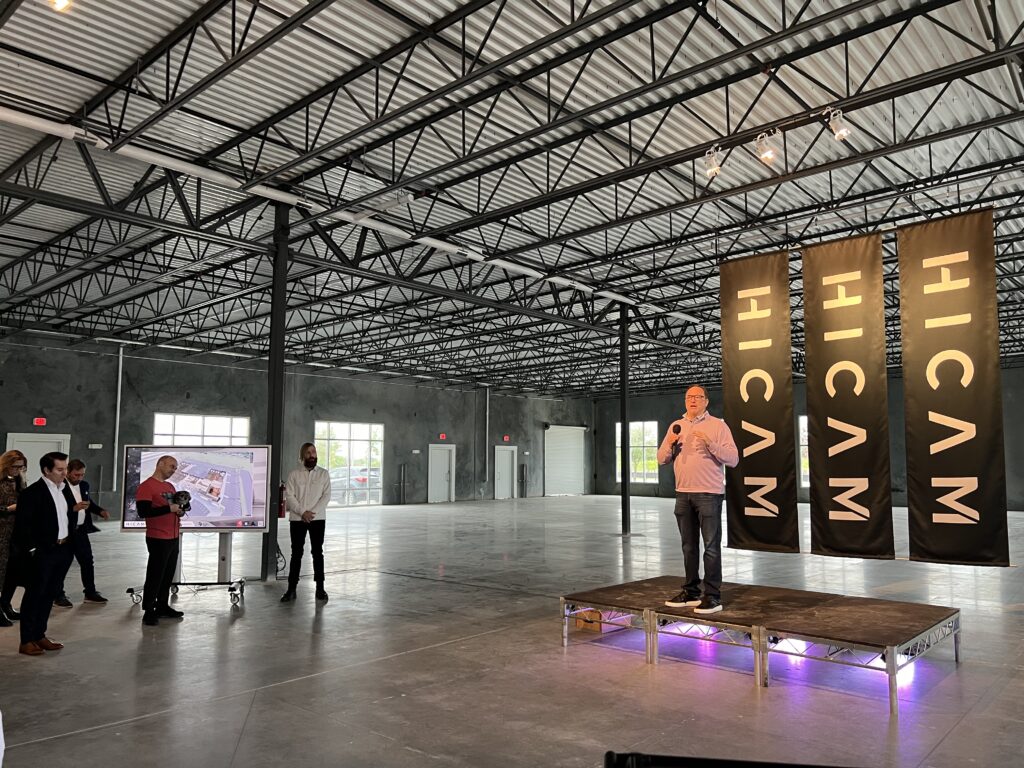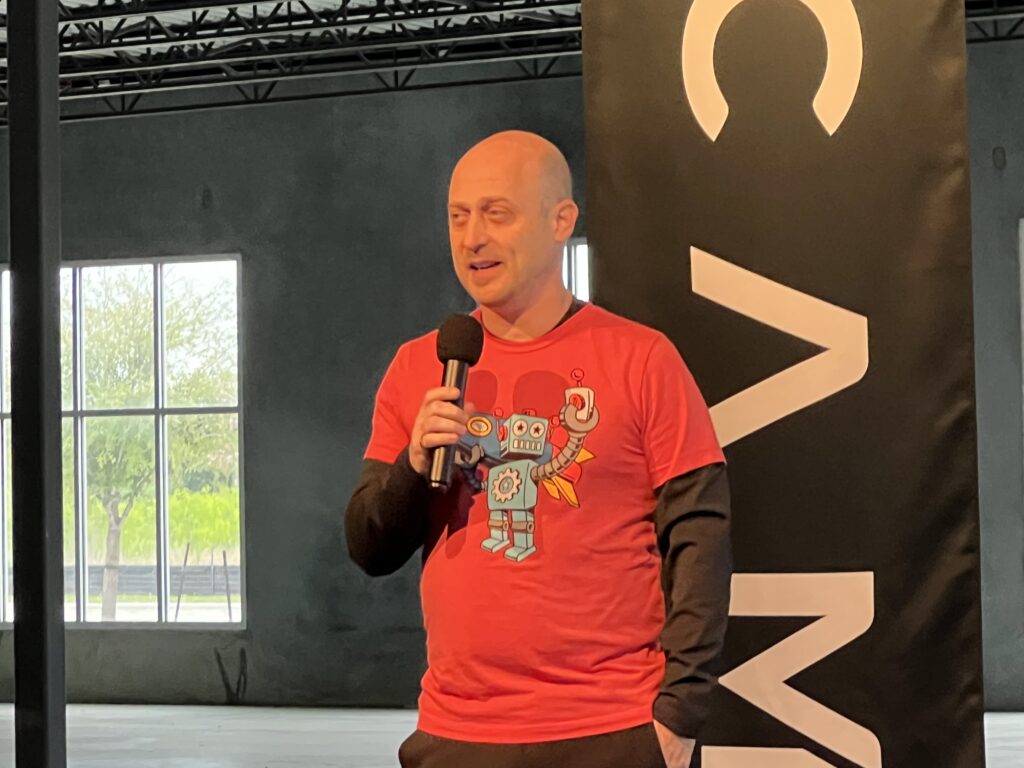
A new robotics accelerator is beginning to take shape just down the street from the massive Tesla Giga Texas manufacturing plant.
It’s the Hays Innovation Center for Advanced Manufacturing, known as HICAM, and last Thursday, the project’s developers held an event at the 50,000 building to unveil the new accelerator program. HICAM supports Its startups in the areas of advanced manufacturing, robotics, automation, and artificial intelligence companies.
The building is in the SH 130 corridor in East Austin. HICAM, a nonprofit center for advanced manufacturing, sits on a seven-acre campus at 6201 Quinn Lake Trail. HICAM focuses on fostering economic development and workforce development in East Austin.
The center is named in memory of Warren Hayes, an Austin entrepreneur who pioneered large-scale modular building development and founded the SH130 Municipal Management District.
HICAM seeks to promote and expand advanced manufacturing capabilities in the U.S., particularly in the Texas Triangle, projected to account for many of the nation’s new manufacturing ventures.
HICAM offers industrial space to startups building hardware that needs much room.
Space in Austin has changed a lot, and HICAM meets a need for industrial space for manufacturing companies, said Joshua Bear, founder and CEO of Capital Factory.
“There is an opportunity here in Texas to bring back manufacturing,” Bear said. Central Texas is emerging as the centerpiece of the advanced manufacturing sector.
HICAM is in a strategic partnership with Capital Factory and plans to announce other partnerships soon.
“This project is a vital step toward expanding cutting-edge manufacturing operations within the Texas Triangle, anchored by San Antonio, Houston, and the Dallas-Fort Worth metroplex, with the greater Austin region serving as a major technology hub,” Marc Spier, HICAM’s board chair, said.
Spier said the plan will drive advanced manufacturing back to the U.S. and Texas, particularly with HICAM leading that regional effort.
“If we do things right, the companies that leave here will be incredibly successful,” Spier said.
Spier said there are many milestones. This is the first, he said, and there will be more later this year.
Executive Director Marcus Metzger will operate HICAM. He previously served as executive director and founding member of Future Space NYC, a multi-purpose co-working incubator focused on the creative technology industry. He also served as head of a digital fabrication business in New York, specializing in custom manufacturing interactive installations for world-class museums and Fortune 100 businesses. He also runs NeoForge, a robotic additive manufacturing startup.
HICAM plans to select 5 to 10 companies in the initial cohort and hopes to graduate those companies within a one-to-three-year timeline, Metzger said.
“Our goal is to facilitate the rapid growth of promising hardware and manufacturing startups, seeing them graduate from our accelerator and into their manufacturing facilities in Central Texas,” Metzger said.
HICAM also plans to establish classrooms and educational partnerships with local academic institutions to build on the successes of existing workforce development programs. The education track will span six to nine months, focusing on skill acquisition in robotics, high-tech manufacturing, digital fabrication workflows, and computer-controlled machines.
Graduates of the program will earn a certificate, verifying their skill set and career readiness in advanced manufacturing fields. Moreover, businesses operating within the accelerator will actively contribute to curriculum development, leadership, skill sharing, and machine supervision to ensure a targeted skills pipeline. The accelerator also develops a specialized track to integrate veterans and active-duty military personnel into the workforce using similar educational frameworks.
In 2022, Austin voters approved a $750 million bond for all ACC campuses. Still, it included building a new campus focused on skilled trades at the college’s Southeast Travis County land near the Austin-Bergstrom Airport, said Molly Beth Malcolm, executive vice chancellor of operations and public affairs at Austin Community College. She said that ACC increasingly focuses on training students for highly skilled advanced manufacturing jobs.
Austin is becoming a hub for A.I. and robotics. The University of Texas’ Robotics Center has spun out two robot startups: Diligent Robotics, which makes Moxi, which assists in hospitals, and Apptronik, which makes Apollo, a humanoid robot used by Mercedes Benz in its manufacturing plants.

